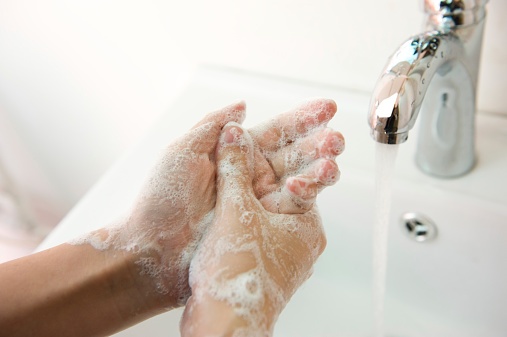Cold and flu season can be an especially dangerous time for older adults. That’s because, as we age, our immune systems lose effectiveness, making a bout with a cold or flu virus more serious—or even deadly.
Research has shown a case of the flu can increase your risk of developing pneumonia and even heart attack or stroke.
There are several things you can do to prevent exposure to cold and flu viruses and protect yourself if you’ve been exposed.
Get a Flu Shot
Over the past few flu seasons, the flu vaccine has been less than 50 percent effective, which may make it seem like getting a flu shot isn’t worth it. But, doctors note, if you contract the flu after receiving a flu vaccine, you will be much less likely to be hospitalized or end up with pneumonia.
The vaccine takes about two weeks to become effective, so the sooner you get it, the better. However, you can still receive the benefits of the vaccine even if you get it later in the flu season.
If you’re over the age of 65, a high-dose vaccine is an option. Higher doses of the flu vaccine have been shown to provide better protection than standard flu shots.
Get a Pneumonia Vaccine
Did you know pneumonia is responsible for 30 to 40 percent of hospitalizations of older adults? While various viruses and even fungi can cause pneumonia, a big concern is developing the condition after you’ve had a cold or the flu.
Consumer Reports recommends getting both pneumonia vaccines—Prevnar and Pneumovax.
Wash Your Hands
The Centers for Disease Control recommends washing your hands with soap and warm water for 20 seconds. As a refresher, wash your hands:
- Before, during and after preparing food
- Before eating
- Before and after caring for someone who is sick
- After using the toilet, changing a diaper or cleaning up someone who has used the toilet
- After blowing your nose, sneezing or coughing
- After touching garbage or pet food, handling a pet or picking up animal waste
Be Aware of how Germs Spread
Avoid touching your eyes, nose and mouth—common places for germs to enter your system. Also, during cold and flu season clean frequently touched items in your home like doorknobs and countertops, and your phone, cellphone and computer keyboard.
Adopt Healthier Habits
Try to get 150 minutes of moderately intense activity per week, get eight hours of sleep a night and eat a nutritious diet.
What To Do if You Get Sick
Sometimes, despite your best effort, you still get sick. Here’s what to do if you find yourself battling a cold or flu virus.
Learn the Symptoms: Though they may seem interchangeable, the cold and flu viruses are very different. Remember, colds come on gradually and don’t usually produce fevers, while the flu comes on suddenly and almost always produces a fever and body aches.
Take it Easy: Rest as much as you can and take over-the-counter medications to ease symptoms. If you think you have the flu, Consumer Reports recommends seeing a doctor for treatment as soon as possible. If you have to leave home while sick, wear a face mask or use a tissue to stop the spread of germs through coughs and sneezes. Also remember to frequently wash your hands to stop the spread of illness.
Know if You Need Emergency Help: As noted above, the flu can turn deadly. If you experience shortness of breath, chest pain, uncontrolled vomiting, confusion or dizziness, or if you start to feel better but then feel worse, seek emergency medical care.










